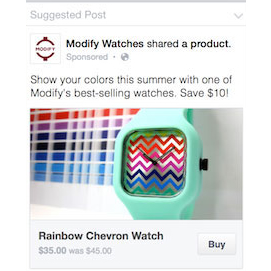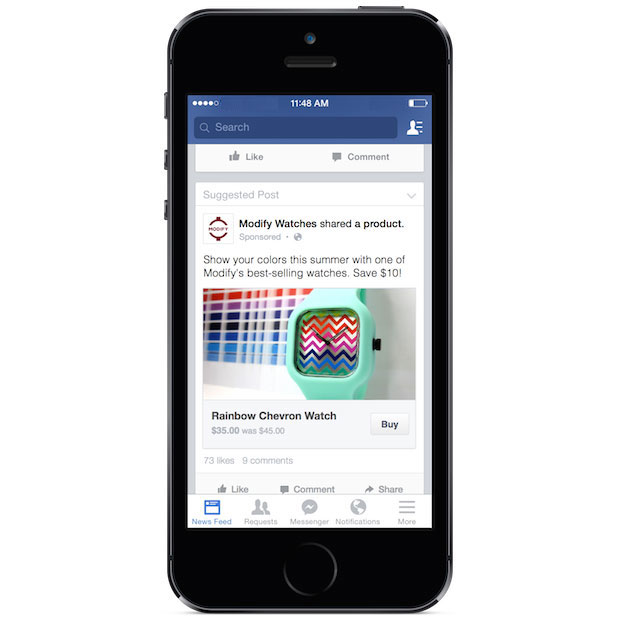Facebook is testing out a brand new feature – a “Buy” button which shows within a suggested post in a user’s news stream. The button displays on a sponsored post where a company shares a product, which includes information about the product, the pricing and the “Buy Button”.
Facebook has selected a few small and medium-sized businesses based within the US to beta test the new feature. It is currently free for those businesses during the testing phase, however Facebook will likely charge for this feature at a later date.
It also raises the question of how advertisers will pay for these ads. Will they pay for the sponsored post as advertisers currently do today, or will there be an additional charge for the buy button? There are several different revenue models Facebook could use to additionally monetize a “Buy” button, including charging on a CPM rate, charging for each clickthrough, or charging – or splitting revenue – from actual sales made through the “Buy” button.
The purchase cycle is completely run by Facebook, meaning that sellers will never have access to customer’s credit card or debit card information. Instead, buyers have the choice to enter their payment information on a by-purchase basis or they can chose to save a credit card on file with Facebook, to be used for all Facebook purchases.
While the posts do show likes, comments (and presumably shares), it doesn’t show any information about customer reviews for the products being sold. In an era where users rely heavily on personal recommendations and reviews, the lack of customer reviews from the posts are revealing. Was it omitted by choice? Or do they plan to only show reviews for verified purchased made through Facebook, similar to how Amazon shows reviewers with verified purchases of the product through Amazon.
Facebook isn’t the only social media platform experimenting with a “Buy” button. Twitter also recently tested their own “Buy” button, although it doesn’t seem to have been made available beyond that initial test at this time.
Facebook doesn’t seem to be accepting new advertisers into the program, however if you have a Facebook Ads rep, it wouldn’t hurt to ask. They plan to share more information as they gather feedback on the new change.
Jennifer Slegg
Latest posts by Jennifer Slegg (see all)
- 2022 Update for Google Quality Rater Guidelines – Big YMYL Updates - August 1, 2022
- Google Quality Rater Guidelines: The Low Quality 2021 Update - October 19, 2021
- Rethinking Affiliate Sites With Google’s Product Review Update - April 23, 2021
- New Google Quality Rater Guidelines, Update Adds Emphasis on Needs Met - October 16, 2020
- Google Updates Experiment Statistics for Quality Raters - October 6, 2020

